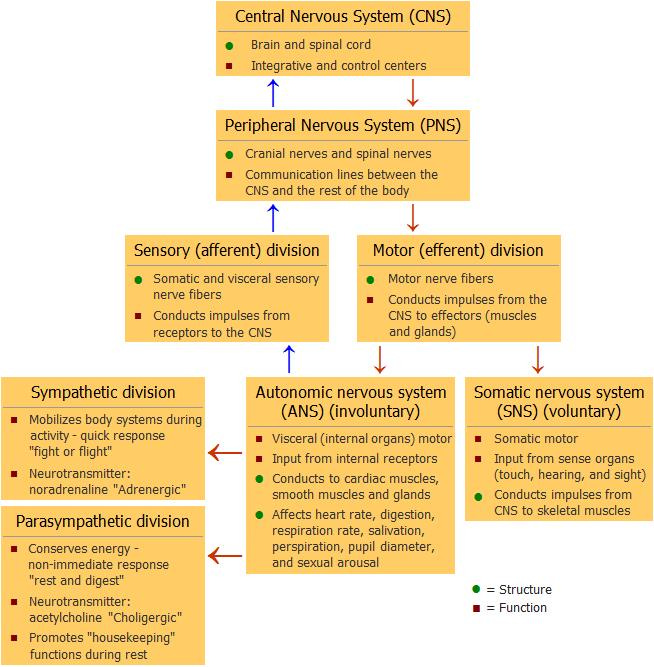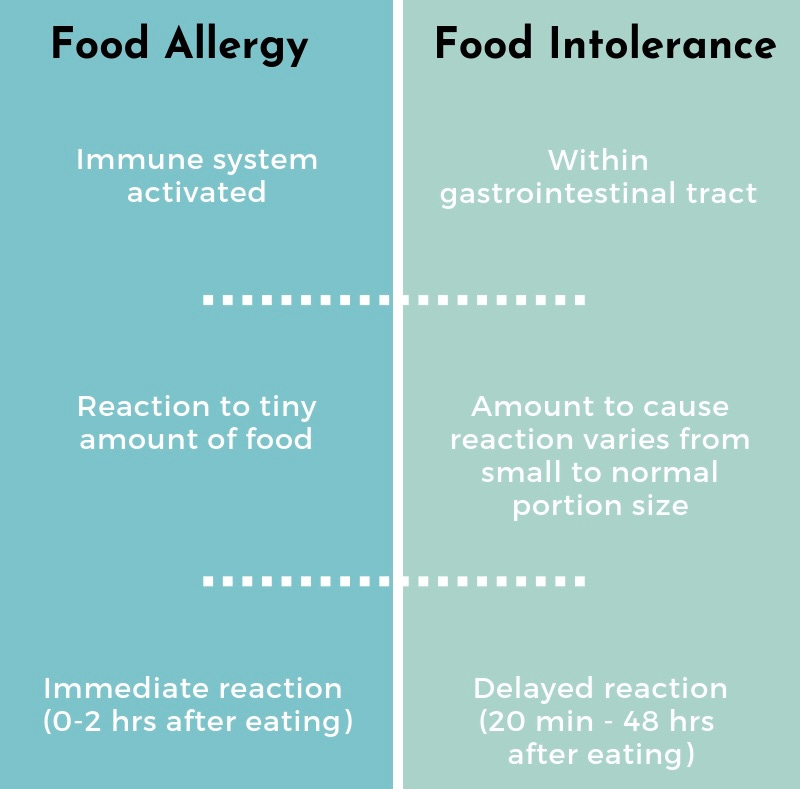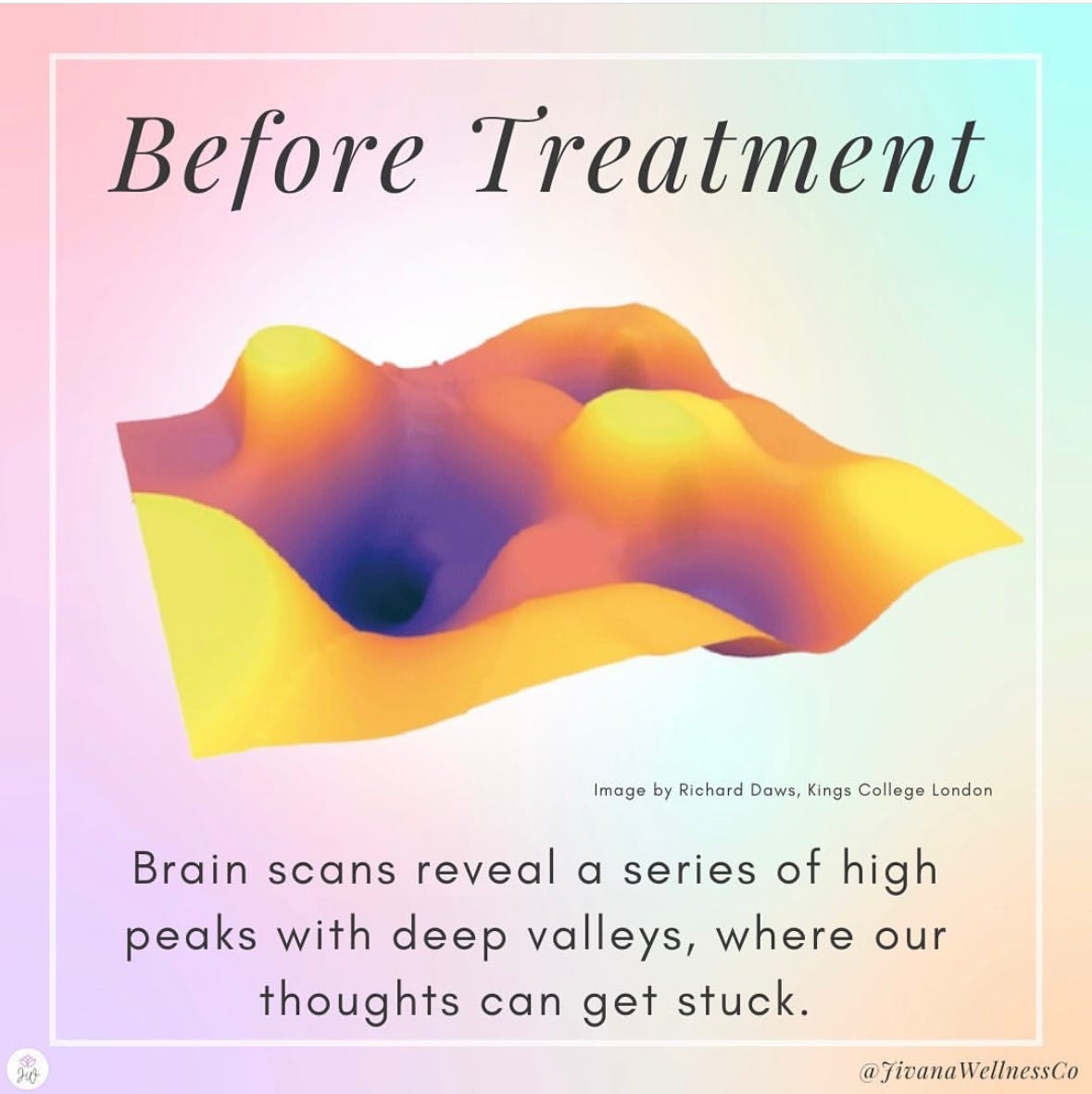Intro: The Concept of the Trinity
“The mind is but a subtle aspect of the body, and the body is but a dense aspect of the mind.” - Matthew Wood
Each of us is a trinity of body, mind, and spirit. These three aspects are interconnected, NOT separate, and all three must be taken into account when we are assessing or practicing holistic healing. Holistic healthcare, though an ancient conglomerate, is considered unconventional in a world of allopathic healthcare. Although there are appropriate circumstances for both modern medicine and holistic healing modalities, many tenets of modern medicine seem to diametrically oppose those of holistic health. So, with such differing ideologies- how do we know which school of thought is correct? Is there such a thing as a single, supreme truth?
I venture to say: No, not in the Age of Information- which is both a blessing and a curse. Let’s be real for a minute and call all this what it is: opinion. Opinions are not always facts, and facts are not always the popular opinion- but we are all entitled to our own opinion. We can also all take solace in knowing that time often reveals truth. So, without further adieu, here are some of the most controversial, unpopular opinions that I have as a holistic healer living in 2023.
Opinion #1: The quality of your consciousness directly impacts the health of your nervous system.
The nervous system is one of the most complex and important systems of the body. It is the interface between our internal environment and our external environment; a bridge between the body and the mind. There’s alot that can go wrong! But what are the factors that impact the quality of your consciousness? Your perception of the world! Your values, belief systems, your self talk, the quality of your thinking…
Circling back to the concept of HOLISTIC healing: I’m not saying if you simply change a few negative beliefs and stop talking down to yourself, that you’ll cure a case of MS or autism. That is ridiculous. But I’m saying that if you learn to be kind, gentle, and honest with yourself, your nervous system will thank you… and I promise that it will make a difference in how you feel.
Opinion #2: Many psychosomatic issues go hand-in-hand with endocrine imbalance, and many endocrine imbalances go hand-in-hand with our toxic lifestyles.
Endocrine disruptors (EDs) are a ubiquitous class of chemicals that interfere with the functions of our endocrine system in a wide variety of ways by duplicating, exaggerating, blocking, or altering hormonal responses. EDs are found in everything from processed food, non-organic food (pesticides), water bottles, packaging, cosmetics, personal care items, feminine hygiene products, clothing, carpet, toys, cleaners, receipt paper, and more. The uncomfortable truth is that today, none of us can fully escape exposure to these chemicals.
The physiological effects of EDs vary widely, but exposure is linked to several types of cancer, infertility, PCOS, endometriosis, pediatric developmental disorders, asthma, diabetes, obesity, ADHD, and the disruption of many functions of the brain and nervous system that contribute to a plethora of other psychosomatic health issues. We know that ED exposure, especially during critical periods of development like in gestation or early childhood, can have permanent effects on a person’s health and well-being. Also worth noting: some people are more sensitive to these chemicals than others based on genetic and epigenetic factors, etc.. Furthermore, the effects of these chemicals on the sexual and reproductive capabilities and behaviors of hundreds of wildlife populations have been well documented since at least the 1990s… but evidence seems to be a bit more elusive around whether or not this is affecting humans in a similar way.
Despite increasingly alarming health trends and a growing body of legislation banning or restricting particularly virulent forms of these chemicals, endocrine disruptors are not currently considered a threat to public health by mainstream health officials. It’s no wonder, really. Could you imagine the economic, industrial, cultural, political, and regulatory consequences of full-scale confirming that these ubiquitous chemicals are, in fact, devastating to life on this planet?
Opinion #3: Ignoring even a potential food intolerance is a bad idea.
Did you know that the interior of the digestive tract is actually considered outside of the body? Like the nervous system, the digestive system serves as another bridge between our world, body and mind. The gut/brain axis refers to the constant two-way biochemical signaling between the CNS and GI tract. The gut affects the emotional and cognitive centers of the brain, gut bacteria influences immune cells, and there is a whole team of GI specific hormones who monitor and regulate your gut mucus.
Food intolerance, once believed to be harmless irritation of the gut lining, affects not just digestion but also mood, memory, cognition and perhaps, in chronic situations, contributes to more serious issues like leaky gut. Leaky gut is a hotly contested, relatively novel idea used to describe chronic, systemic gut inflammation which facilitates increased intestinal permeability. This hyperpermeability is believed to allow bacteria, toxins, etc. into the bloodstream and can contribute to a cornucopia of adverse health effects. Leaky gut can also be caused by malnutrition, injury, use of medicines/antibiotics/herbs.
Leaky gut may lie near the root of many chronic illnesses and psychosomatic health issues including depression, anxiety, autism, insomnia, GERD, IBS, Crohn’s disease, colitis, fibromyalgia, chronic upper respiratory infections, eczema, and more. So if the gut/brain connection is real, then repeatedly eating foods that don’t agree with us is actually pretty serious.
Opinion #4: A person’s external disconnect from nature will disconnect them from their true nature internally.
This is a big one in Vitalism and contributes to SO MANY of the chronic health issues that I encounter in my practice, including in my own personal journey. Yet, there are a growing number of humans who seem to be forgetting that they are literally a piece of nature. But let’s face it: Humans came from the natural world and ALL of our ancestors were much more connected to it than we are today.
I do not think that a connection to nature is something that we should be trying to evolve out of BUT the truth is that in 2023, some of us dwell completely in artificial realms and, unsurprisingly, these people are really different than those who cultivate their relationship with the real, actual planet. And please, do you! But if you are struggling and feel a calling to work on your relationship with the world around you, a solid first step would be to recognize the divinity of nature is already inside of you.
Opinion #5: Detox won’t help you if your spirit is dirty.
Everyone loves a detox! But you need to be doing the real inner work too to get your mind and spirit right. For instance, I bet we all know at least one person who is super “health” conscious but they’re still toxic AF or something is just… off. Spoiler alert: The filth and the parasites they’re so worried about aren’t in their intestines. That’s a psychospiritual issue.
If you are dealing with psychospiritual imbalance: try journaling, meditation, somatic movement, breathwork, prayer, smudging, taking steps to live an authentic life, and/or reaching out to a spiritual guide or religious figure with whom you are comfortable.
Also, I’ve written on this before, but again: please do not ever detox if you’re already in a state of deficiency.
Opinion #6: Does chemical imbalance result in psychological patterns… or do psychological patterns result in chemical imbalance?
Yes I know, this thought sounds crazy because we were all fed the dogma that chemical imbalance causes depression and other psychological patterns. But the truth is, the science isn’t actually “settled” on this and with the level of technology that we have today, the causative role of neurotransmitters in chemical imbalance can no longer be ignored.
Neurotransmitters are the body’s chemical messengers that control nearly every bodily function- from movement, to breathing, speech, heart rate, digestion, and beyond. They also transmit and are influenced by our thoughts and emotions. One can consciously improve their neurotransmitter function with activities like exercise, affection, meditation, time spent outdoors, thinking positively, and practicing gratitude.
So, if neurotransmitters are what actually control chemical imbalance, and our thoughts and choices do have a certain level of influence over our neurotransmitter activity… Maybe the question isn’t so crazy, after all.
Opinion #7: Herbal medicine shouldn’t be used like allopathic medicine.
As an herbalist, one of the first questions I get about an herb is almost always “Well, what is this good for?” What a loaded question, and it’s one that does not EVER have a simple answer… The “this for that” mindset is allopathic, and just not how herbal medicine traditionally works. You can practice herbal medicine that way, sure, but herbs (as natural, ancient beings) are so much more complex than pharmaceuticals. They often have multiple organ system affinities and actions, and even varying energetics based on the part of the plant being used.
Not taking herbal and constitutional energetics into account means potentially ineffective therapeutics or even worse, iatrogenic effects or creating dependency on the herb. Herbs should be used as support for the body in a particular state or season, and you normally shouldn’t have to take the same herb consistently for the rest of your life.
Opinion #8: Your compassion should not be reserved just for those who are like-minded.
Nuance is a part of nature. We shouldn’t feel threatened by it. We are meant to care for one another, not to all be the same. I think that widespread desire to homogenize humanity is a big contributing factor to the sickness and splintering within our society. Not to mention, persecution of dissenting views is a tale as old as human history. But, please don’t confine the exercise of your benevolence only to those who agree with you. This is certainly easier said than done- but, as self-proclaimed civilized society, we should all have the decorum to try our best at being tolerant and accepting of our differences.
“Do what is easy and your life will be hard, do what is hard and your life will become easy.” - Les Brown
Opinion #9: Only you can heal you.
This is my personal opinion as a Vitalist. At its core, Vitalism cites an intrinsic intelligence of nature and focuses on the overall (physical, mental, spiritual) vitality of a person. Our bodies generally have the intelligence and ability for self-healing but sometimes, especially in this modern age, we might need a little help finding our way back to that true nature.
If you choose to work with a Vitalist healer, they will not do the work for you. What we will give you is the knowledge, tools, and guidance to do your own healing. If you’re looking for someone to use their prana as a Source conduit in your energy field or to cosign you deeper into artificial realms, then this type of healer might not be your cup of tea. :)
Opinion #10: Symptom suppression is not really healing.
If someone is burnt out by a stressful lifestyle and I give them adaptogenic herbs for burnout just so they can continue to live unsustainably, is that really helping them…? No! Symptom suppression may temporarily alleviate discomfort, but chronic symptom suppression can gradually drive the root imbalance deeper into the body and cause serious illness.
This is because suppression of symptoms usually involves suppressing the body’s natural defenses (i.e. taking ibuprofen to relieve a fever, which is the body’s natural response to fighting an infection). Ironically, symptom suppression is something that many conventional medicines pride themselves on the ability to do. Alternatively, a Vitalist will seek to understand the energetics behind the root imbalance, then help that imbalance work its way through the body. We use herbs and other therapeutics to support the body in this expression of energy.
The truth that people usually don’t want to hear is that bending a timeline (i.e. healing a chronic imbalance) is often uncomfortable. Not only does it require an immense amount of effort on the part of the afflicted person, but I’ve observed that effective treatment of “root” imbalances of chronic illness will also sometimes cause the person a temporary exacerbation of (usually more superficial) symptoms. But! Once the storm is weathered and the symptoms clear, that person usually experiences a breakthrough in their healing.
Opinion #11: Rigid thinking inhibits growth.
Reductionistic thinking and outsourcing of your critical thinking are subconscious thought patterns that are toxic, dangerous, and all too common with the level of technology integrated into our lives. An unfortunate (and usually unintended) side effect of this is the cultivation of a self-limiting, fixed mindset and a life devoid of empowerment, passion, and connection.
Last year before the publication of my intention journal, I completed a small research project on microdosing that involved interpretation of arterial spin labeling perfusion and blood-oxygen level-dependent fMRI neuroimagery of human subjects struggling with a variety of psychiatric and neurological disorders before, during, and after psilocybin use. The imagery prior to psilocybin intervention consistently portrayed a brain ‘landscape’ of high peaks and deep valleys in the salience, default mode, and central executive networks of the brain. The bumpy landscapes revealed in these scans inhibited synapses (i.e. providing an actual visual of rigid thought patterns). This serves as confirmation that our thought patterns are associated with overall cognitive function, as well as our mental and neurological health.
The good news is that even if you are stuck now, it is possible to alter your neural pathways. People can grow, learn, evolve, and even jump timelines all together. There is nothing ahead of you in this life that is set in stone. You are responsible for cultivating, not entitled to receive, the type of mind you want to have.
Opinion #12: You shouldn’t really be scared of germs.
Ah, Germ theory. Another case of idealistic dogma. We were all taught that germs are nasty little microorganisms that sneak into our bodies and wreak havoc by causing disease. But… what if germs were just the scavengers that gravitate towards already diseased tissue? This concept is called Terrain theory. If it were true, then the state of our internal environment would determine if germs would cause us infection or disease. And therefore, pursuing a healthy and balanced self would be more important than waging war against an invisible enemy.
Thank you for joining me for Part 3 of Ancient Healing for Modern Disease! Part 4, a crash course in astroherbalism, is coming soon.







